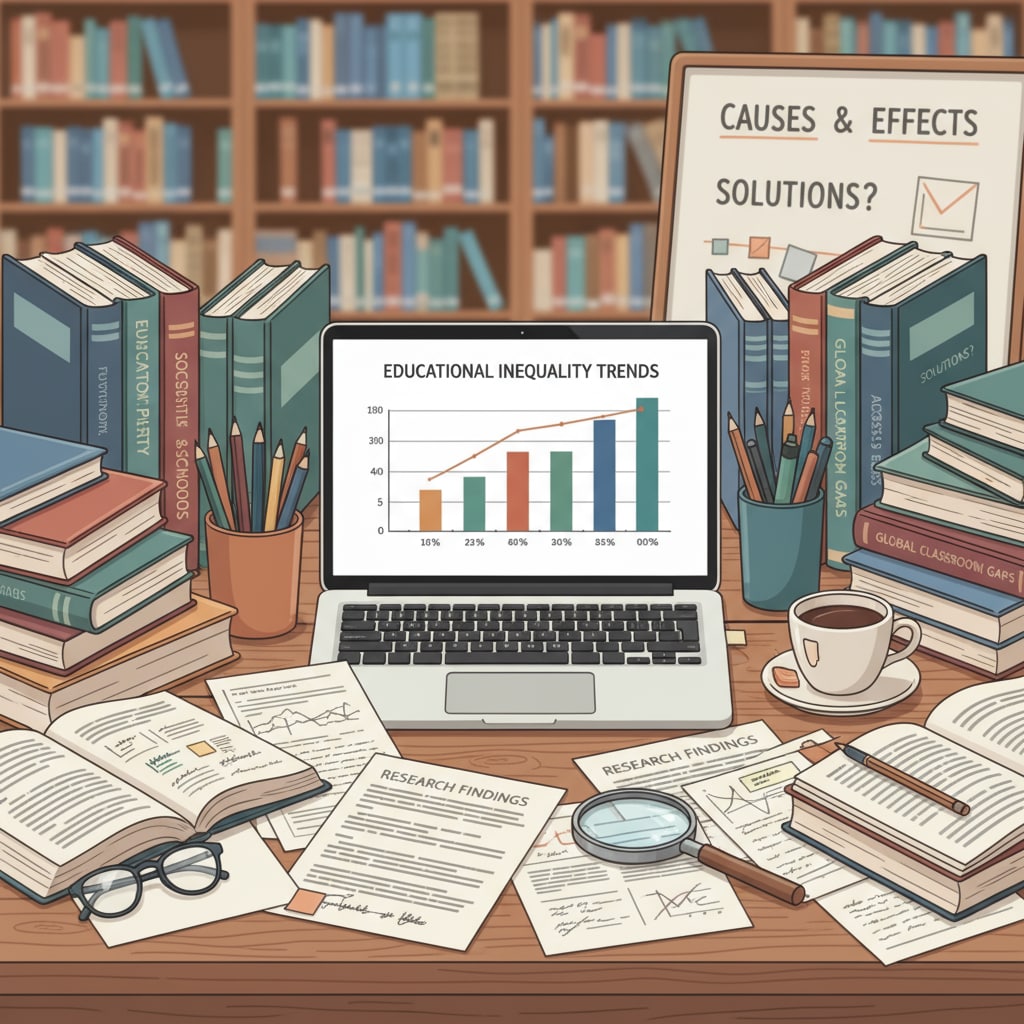In the realm of education, research, evaluation, and educational inequality are intertwined concepts that play a crucial role in shaping the future of learning. Research serves as the foundation for understanding educational phenomena, while evaluation helps to assess the effectiveness of educational interventions. Together, they can be powerful tools in the fight against educational inequality.

For instance, research can uncover the root causes of disparities in educational access and outcomes, and evaluation can determine whether programs aimed at reducing these inequalities are working.
The Nature of Research in Education
Research in education is a systematic inquiry aimed at generating knowledge. It involves formulating research questions, collecting and analyzing data, and drawing conclusions. According to Educational research on Wikipedia, educational research can be qualitative, quantitative, or a combination of both. Qualitative research focuses on understanding the experiences and perspectives of individuals, such as students and teachers. Quantitative research, on the other hand, deals with numerical data and statistical analysis. Through research, we can gain insights into factors contributing to educational inequality, like socioeconomic status and cultural background.

The Role of Evaluation in Education
Evaluation in education is about judging the value, effectiveness, or worth of educational programs, policies, or practices. As described on Educational evaluation on Britannica, it helps to determine whether educational initiatives are achieving their intended goals. Evaluation methods include formative evaluation, which occurs during the implementation of a program to provide feedback for improvement, and summative evaluation, which assesses the overall impact of a program at the end. By evaluating educational interventions, we can identify what works and what doesn’t in reducing educational inequality.
Research and evaluation, though distinct, are complementary. Research provides the knowledge base for evaluation, and evaluation can inform future research directions. Together, they can guide educators and policymakers in making informed decisions to address educational inequality. For example, research might identify a particular teaching method as effective for disadvantaged students, and evaluation can measure the long-term impact of implementing this method in schools.
Readability guidance: Use short paragraphs and lists to summarize key points. Provide a list under each H2 whenever possible. Control the proportion of passive voice and long sentences. Incorporate transition words like however, therefore, in addition, for example, and as a result throughout the text.


